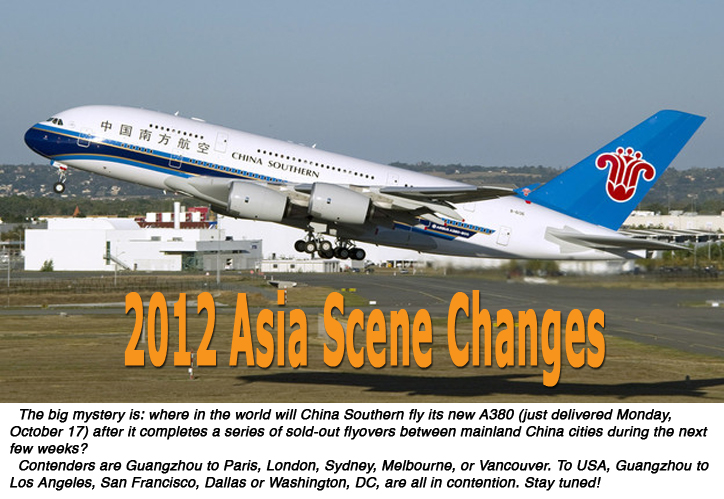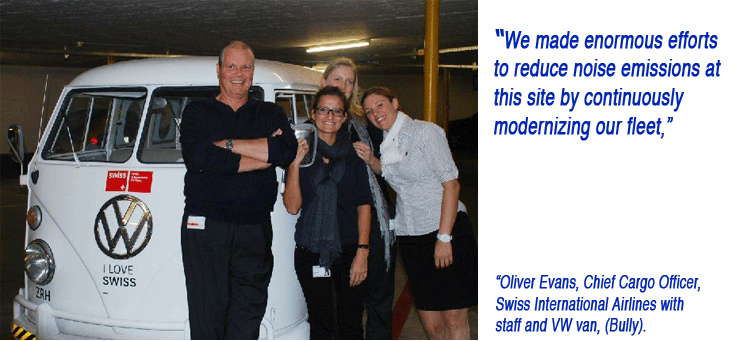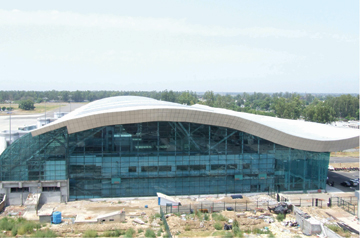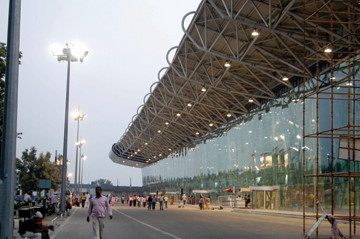
 While
the major trade lanes from Asia to Europe and North America may be suffering
from overcapacity and lower than expected cargo volumes, not least because
both continents are struggling to avoid recession, trade within Asia is
still showing strong growth, according to leading figures contacted by
Air Cargo News/FlyingTypers. While
the major trade lanes from Asia to Europe and North America may be suffering
from overcapacity and lower than expected cargo volumes, not least because
both continents are struggling to avoid recession, trade within Asia is
still showing strong growth, according to leading figures contacted by
Air Cargo News/FlyingTypers.
“Demand between Asian countries has
been stronger than intercontinental demand all year,” said John
Cheetham, (right) Regional Commercial Manager for the Asia Pacific region
at British Airways World Cargo.
“British Airways World Cargo operates
freighter services between China, Hong Kong, India and Bangladesh. The
demand for these services is good.”
 Jan
de Vegt, (left) Area Manager for Asia at Air France-KLM Cargo, confirmed
that although growth has slowed marginally, demand was still far stronger
than on European and U.S. lanes. “Asia is a little bit more dependent
on airfreight as opposed to Europe and the US,” he added. “There
are far less possibilities intra-Asia with trucking and trains.” Jan
de Vegt, (left) Area Manager for Asia at Air France-KLM Cargo, confirmed
that although growth has slowed marginally, demand was still far stronger
than on European and U.S. lanes. “Asia is a little bit more dependent
on airfreight as opposed to Europe and the US,” he added. “There
are far less possibilities intra-Asia with trucking and trains.”
While there are concerns about excess capacity
being dumped into intra-Asia routes – Cheetham said some carriers
were re-allocating capacity out of “depressed” traditional
markets, and a spokesman for Cargolux said intra-Asia was currently served
by a glut of wide-bodied capacity, which means the economic and trading
outlook remains positive. The latest forecasts from the International
Monetary Fund (IMF), for example, predict that Asia will see overall economic
growth of 6.2 percent this year, rising to 6.6 percent in 2012. ‘Developing
Asia,’ which includes India and China, will grow even faster, at
8.2 percent this year and 8 percent in 2012.
 Andrew
Herdman, (right) Director General of the Association of Asia Pacific Airlines,
said consumer sentiment was still strong in Asia and this was underpinning
solid demand for passenger and cargo services. “There’s no
getting away from the fact that if you’re in long haul, then your
fortunes are intertwined with the U.S. and Europe,” he said. “But
Asia is enjoying solid economic growth. We’ll see intra-Asia continuing
to grow.” Andrew
Herdman, (right) Director General of the Association of Asia Pacific Airlines,
said consumer sentiment was still strong in Asia and this was underpinning
solid demand for passenger and cargo services. “There’s no
getting away from the fact that if you’re in long haul, then your
fortunes are intertwined with the U.S. and Europe,” he said. “But
Asia is enjoying solid economic growth. We’ll see intra-Asia continuing
to grow.”
How that trade is handled in the future
is decidedly unclear at present. Boeing is betting that the incursion
of low cost carriers operating narrow-bodied aircraft will not impact
the widespread deployment of, and demand for, wide-bodied 747s on intra-Asia
routes. Airbus, meanwhile, expects a new market to emerge, one that will
see more demand for regional freighters—its new A330-200F, for example,
or A320 conversions—alongside LCC narrow-bodied planes, particularly
on emerging routes.
Herdman said that, at present, Asian carriers
have a high proportion of wide-bodied planes in their fleets and this
was limiting freighters to select lanes. “Often it hasn’t
made sense to have regional freighters unless it’s for overnight
parcels by integrators,” he said. “But there are now some
mid-sized freighters and there are opportunities, for example, using freighters
to get cargo into a hub for a long-haul.”
 He also pointed out that some LCCs, most
notably Air Asia, are now moving into long-haul markets using wide-bodied
planes and it could not be assumed they would necessarily stick with fleets
of narrow-bodied planes in the future.
He also pointed out that some LCCs, most
notably Air Asia, are now moving into long-haul markets using wide-bodied
planes and it could not be assumed they would necessarily stick with fleets
of narrow-bodied planes in the future.
Robert Timmerman, (left) Area Manager for
Greater China at Panalpina, is firmly in the Airbus analytical camp. He
predicted “massive” growth of intra-Asia air traffic in the
years to come, which would require the deployment of more regional freighters.
“The trade is the single largest trade
lane in the world and provides great opportunities, on the one hand, but
also challenges going forward due to the imbalance of the volumes within
Asia.”
SkyKing
|







